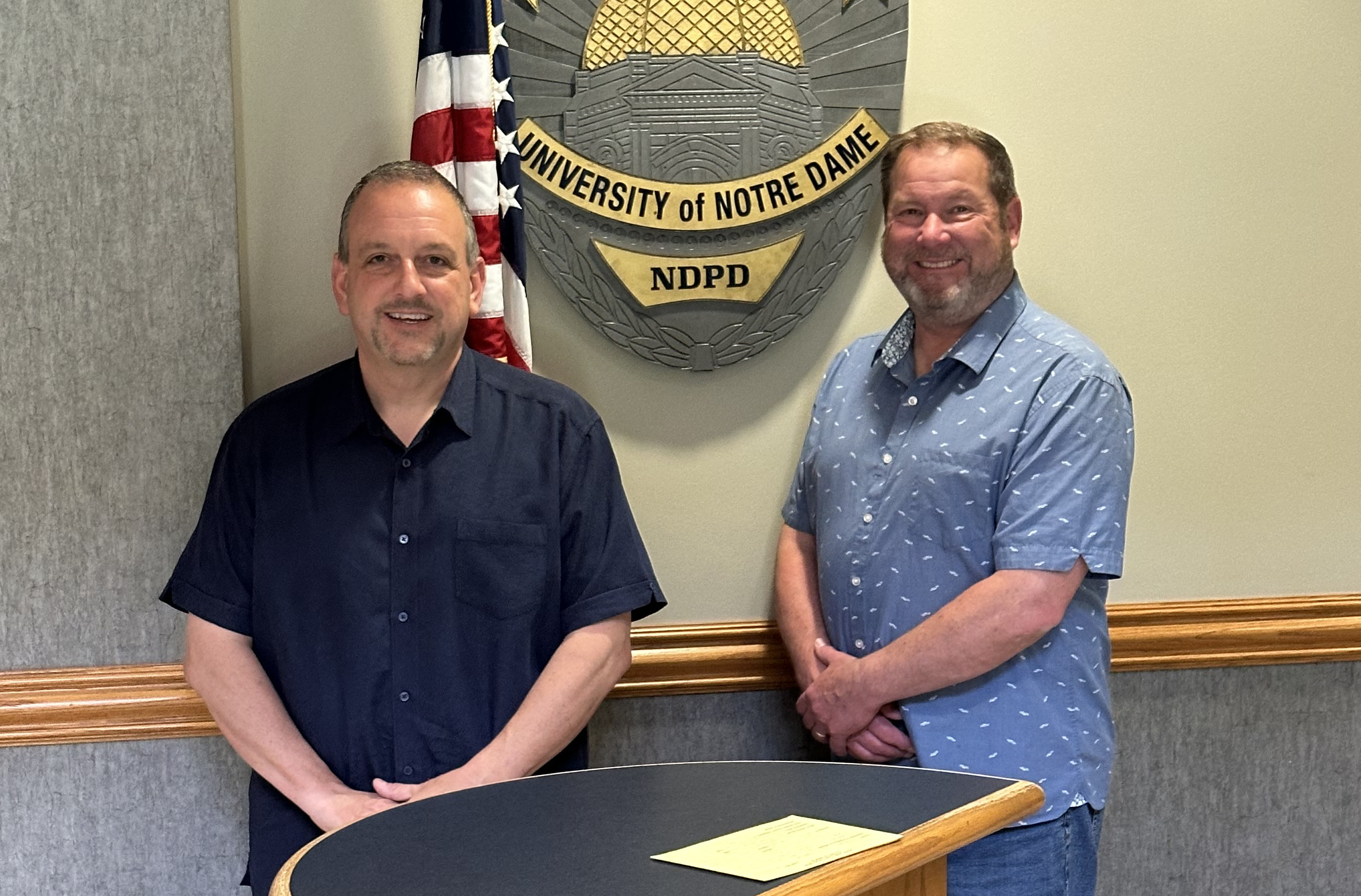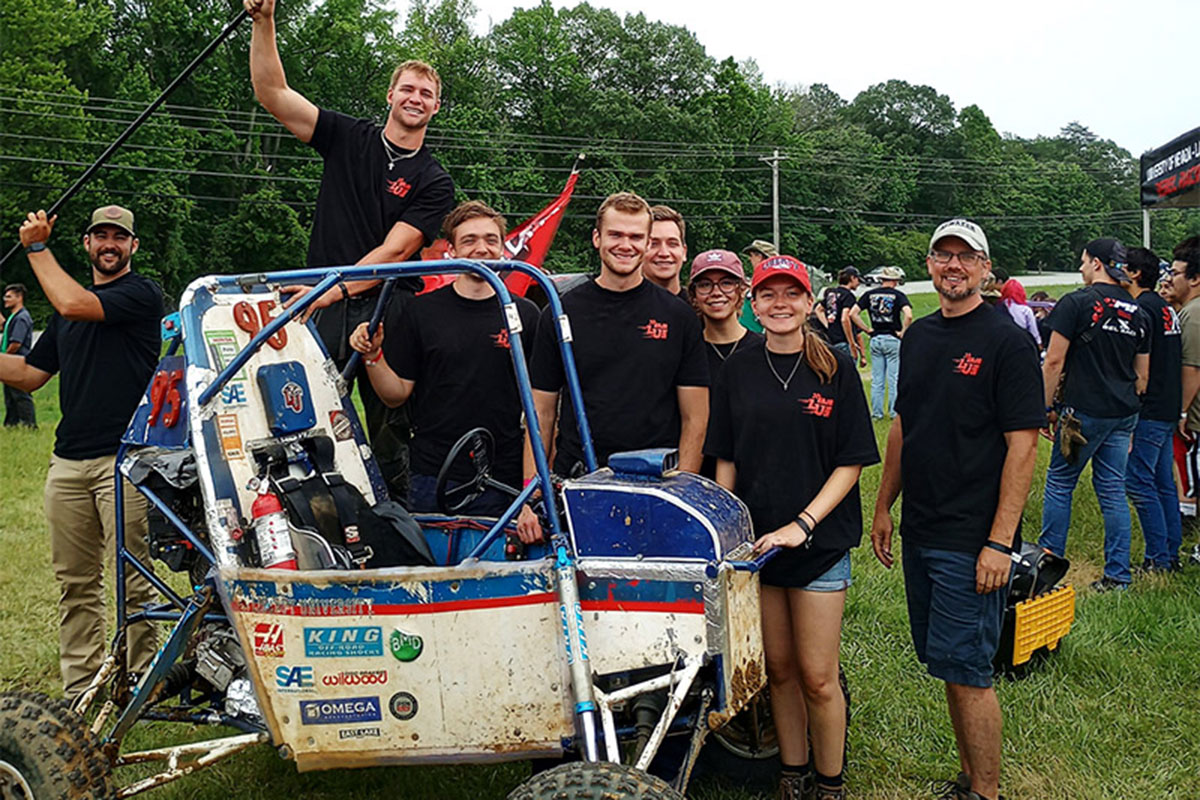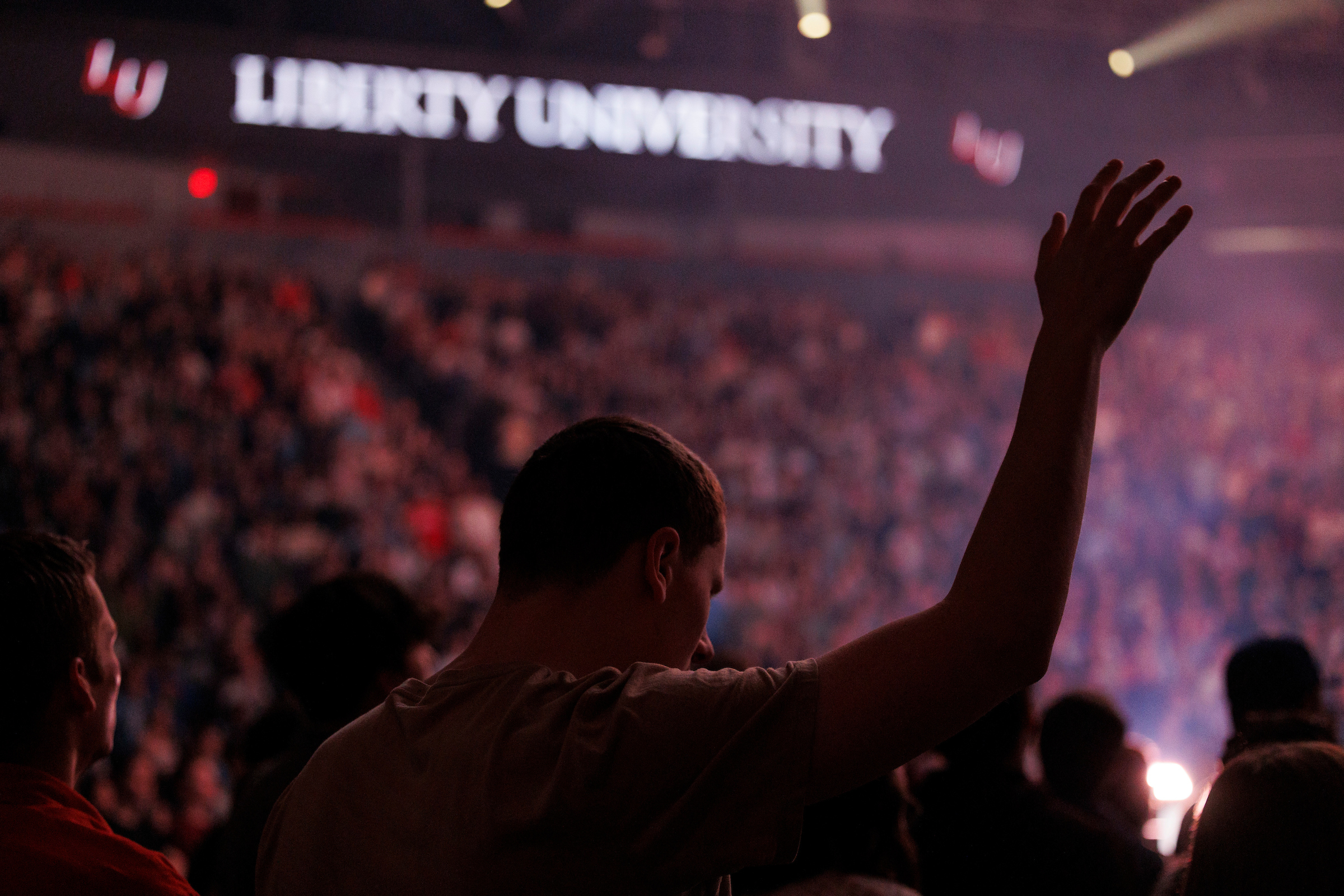Search News Archives
Filter News Articles
Additional Navigation
Cyber defense team set for virtual regional competition
April 2, 2020 : By Ted Allen - Liberty University News Service
UPDATE: 4/4/2020: Liberty University’s Cyber Defense Team repeated its third-place showing from last year at Friday’s and Saturday’s Mid-Atlantic Collegiate Cyber Defense Competition (MACCDC), held remotely for the first time. Competing in the most challenging region in the nation, Liberty finished behind two schools from the region that had won four National CCDC titles over the past five years.
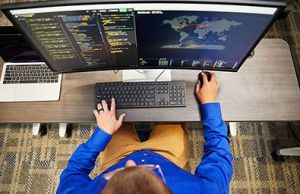 4/2/2020: Unique challenges await Liberty University’s Cyber Defense Team as it competes in this weekend’s 15th annual Mid-Atlantic Collegiate Cyber Defense Competition (MACCDC).
4/2/2020: Unique challenges await Liberty University’s Cyber Defense Team as it competes in this weekend’s 15th annual Mid-Atlantic Collegiate Cyber Defense Competition (MACCDC).
The COVID-19 pandemic prompted organizers to move the event — normally held at Johns Hopkins University’s Applied Physics Laboratory in Laurel, Md. — to an online format. Typically, competitors are not permitted to use external monitors or communicate via online chats. But restrictions have been loosened to allow team members to collaborate online.
“With the new regulations, each of us is going to be competing from our dorm rooms, apartments, and homes,” Liberty junior team captain Nathaniel Hatfield said. “That raises a whole slew of different challenges we are going to have to overcome. Normally, being in the same room, we would be able to engage with them on a much more personal level.”
The competition is presented by Raytheon and run by the National CyberWatch Center. The scenario for this year’s event involves student teams working for the Artificially Intelligent Institute (AII), a fictitious multinational corporation with offices in the Mid-Atlantic region. Team members will be charged with finding and removing malware and performing forensic activities and security and administrative tasks.
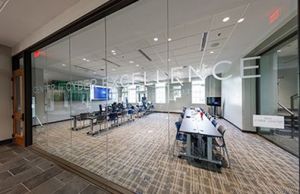
The team, made up of members from Liberty’s Cyber Defense Club, competed virtually in the qualifying round on March 21 and was one of eight teams to qualify for regionals out of a field of close to 30 college and university programs from Delaware, Maryland, New Jersey, North Carolina, Pennsylvania, Virginia, and Washington, D.C. This weekend, Liberty will join George Mason, JMU, Marshall, Penn State, UMBC, Maryland, and Virginia.
Ten computer science: cybersecurity students comprise Liberty’s team: Hatfield, who also serves as Cyber Defense Club president; seniors Aaron Demers, Bobby Piccerillo, Andrew LeFevre, and Charity Barker; and sophomores Michael Tuzi, Nathan Higley, and Nathan May, as well as alternates Amanda Jones and Caleb Matsick.
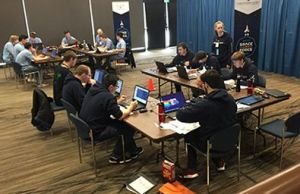
This year’s team is as experienced as any Liberty has sent to the regional level for the last six years. The team has placed well in previous competitions, finishing fifth in 2018 and third in 2019 after placing first in 2016, when it qualified for nationals.
“Many of the members of this year’s team have been on it for two to three years,” said Dr. Allen Harper, executive director of Liberty’s Center for Cyber Excellence. “It is quite an honor to be accepted to this regional competition. What is exciting about the Mid-Atlantic competition is that four of the past five national champions have come out of this region, so to get accepted to this regional is really good exposure for the school.”
The overall champion will qualify to represent the Mid-Atlantic as one of 11 teams at the National CCDC, set for April 25-26. The winner of a Wildcard Round for all 10 regional runner-up teams will also advance to nationals.
Because of the virtual format of the regional competition, the local referees will play even more integral roles to ensure there is no cheating; the MACCDC has recommended that each participant, coach, and site judge participate through video conferencing.
Hatfield is confident his team will rise to the occasion.
“We know if teams want to cheat, there is a greater opportunity and capability because there is a lot less accountability (with the new virtual format),” he said. “It really comes down to integrity and each team’s and each individual team member’s commitment to the spirit of the game. We have to get into the spirit of doing it the right way if we want to represent ourselves and Liberty well, and to represent Christ as best as we can in this online sphere. We’re going to play a clean game and do our best and let the chips fall as they may.”
Cheri Spahr, a business and computer science teacher at nearby Brookville High School who served as a local referee for the virtual qualifying round, said she was impressed with the team’s integrity.
“They were highly skilled, and no issues came up that needed mediation. I could sit back and observe,” said Spahr. “They were very knowledgeable and, for the intensity of a five-hour competition, they looked like they were having fun, working well under pressure. They were tearing up their keyboards, defending their network against live hackers.”
She expects the regional competition to be similar, even with team members split up.
“In the field of cybersecurity, you have to be self-taught and self-motivated, so this is an ideal time for students to be engaged in that,” Spahr said.
Spahr coaches an after-school cybersecurity club in which Tuzi and Barker serve as student mentors. She said Liberty’s collaboration with her team has helped introduce cybersecurity to the next generation of students.
“They’re passing on knowledge to my students, helping to equip them for cybersecurity competitions at the high school level, and it’s really impacted career choices for a handful of them,” she said.
On Thursday, the MACCDC is hosting a virtual job fair, giving students an online forum to interact with potential employers and sponsors. Hatfield said colleges and universities throughout the United States are only meeting 20-25 percent of the current demand for qualified cybersecurity professionals. He said all of Liberty’s graduating seniors have jobs lined up.
“It is a growing market, and it grows more every day,” he said. “Graduates from our program have had no problems securing jobs in the private industry. In our increasingly digital world, cybersecurity is only going to become more in demand, with the need for staff to manage cloud infrastructure. There is a whole, big scary world out there looking to steal your data, and an increasing need for cyberwarriors to defend that data.”
